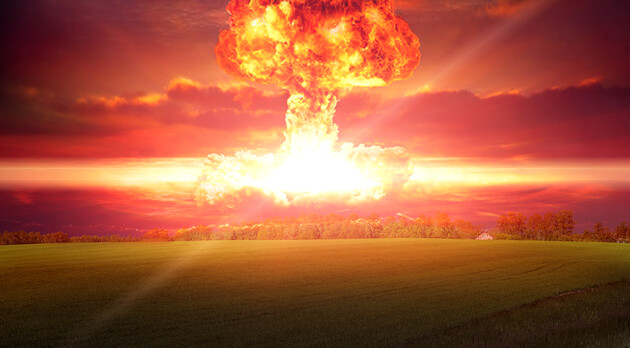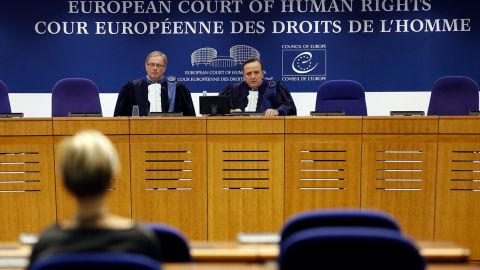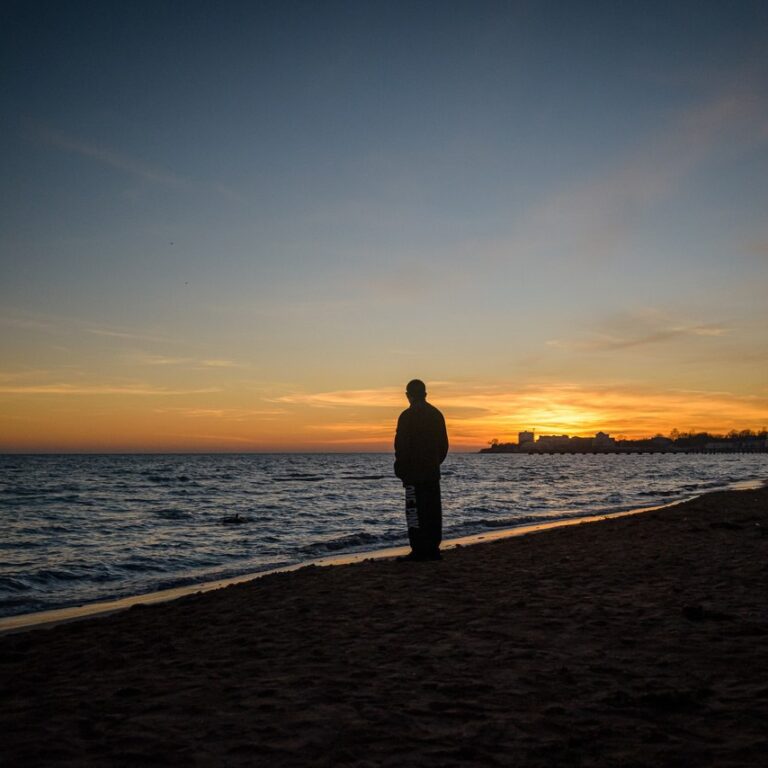On January, 26 Parliamentary Assembly of Council of Europe (PACE) adopted the resolution “Legal and human rights aspects of the Russian Federation’s aggression against Ukraine” 2482 (2023) that will have fundamental significance.
PACE recalled in resolution that the ongoing aggression is a continuation of the aggression started on 20 February 2014, which included the invasion, occupation and attempted annexation of Crimea by Russia. PACE also noted in resolution that Belarus has participated in the Russia’s aggression against Ukraine.
PACE pointed that Russia lacks any plausible legal “justification” under jus ad bellum, regarding this aggression and that Russia’s act meet the definition of the crime of aggression as set out in Article 8 bis of the Statute of the International Criminal Court (ICC) and under customary international law.
Resolution points that the Russian and Belarusian political and military leaders who planned, prepared, initiated or executed these acts, and who were in a position to control or direct the political or military action of the State, should be identified and prosecuted. Without their decision to wage this war of aggression against Ukraine, the atrocities that flow from it (war crimes, crimes against humanity and genocide), as well as all the destruction, death and damage resulting from the war, would not have occurred.
PACE therefore reiterated its unanimous call on member States and observer States of the Council of Europe to set up a special international criminal tribunal for the crime of aggression against Ukraine, which should be endorsed and supported by as many States and international organizations as possible, and in particular by the UN General Assembly.
PACE considered in resolution that the Council of Europe Heads of State and Government, at their 4th Summit in Reykjavik in May 2023, should give their political support to the creation of such a tribunal and provide Council of Europe’s concrete expert and technical support to the process of its establishment, in close co-ordination with other interested international organisations and States.
PACE also considered in resolution that the Council of Europe should have an active leading role in the establishment of the special tribunal, participate in relevant consultations and negotiations and provide concrete expert and technical support for the process of establishment of the special tribunal.
The resolution points not only on perspectives of establishment the special tribunal, but the ext framework of its activities, as PACE supported its creation that would have the following features:
Its jurisdiction would be limited to the crime of aggression committed against Ukraine and would extend ratione temporis to the aggression started by Russia in February 2014, so this tribunal will research the issue of illegal occupation and attempted annexation of Crimea. Its jurisdiction would include the role and complicity of the leaders of Belarus in the war of aggression against Ukraine.
Tribunals’ statute would contain a definition of the crime of aggression in line with Article 8bis of the ICC Statute and customary international law. Its statute would clearly state that personal immunities would not apply to incumbent State officials, in line with the practice of other international criminal tribunals, and that functional immunities would in any event not be applicable to the crime of aggression.
The official capacity as a head of State or government, a member of government or parliament, an elected representative or government official should in no case exempt the accused person from criminal responsibility for the crime of aggression or justify a mitigated punishment. This principle should apply to nationals of States non-parties to the constitutive treaty or agreement, in particular those of the aggressor State and its accomplice.
Tribunal’s statute would contain a list of fair trial rights of the accused, as well as a reference to the principles of legality and non bis in idem, in line with international human rights law and the European Convention on Human Rights, as interpreted by the European Court of Human Rights (ECHR).
Its role would be complementary to the ICC’s jurisdiction and in no way limit or affect the latter’s exercise of jurisdiction over war crimes, crimes against humanity and genocide committed in the context of the ongoing aggression and its jurisdiction in general. Both the ICC and the special tribunal should agree on practical and legal issues such as sharing of evidence, custody of suspects, developing common witness protection schemes, sequencing of trials of individuals prosecuted by both courts.
Tribunal’s seat should be established in The Hague, with a view to ensuring complementarily and co-operation with the ICC and other international courts and institutions. States and international organisations supporting the special tribunal should provide to it sufficient human and financial resources, ensuring its full independence and effective operational functioning while taking into account, in its structure, the fact that it will certainly not immediately or not permanently be able to operate at full capacity.
Pending the establishment of a special tribunal on the crime of aggression against Ukraine, the PACE called on member States and the Council of Europe to support and provide concrete expert and technical assistance to the process of setting up an Interim International Prosecutor’s Office to investigate the crime of aggression, in close co-operation with the Prosecutor General’s Office of Ukraine. Member States should co-operate closely with that Office and make sure in their internal legislation that close judicial co-operation with it is ensured. Such an office could be based outside Ukraine, ideally in The Hague.
PACE also stressed in resolution on the numerous reports of atrocities, gross human rights violations and violations of international humanitarian law committed by Russian forces or affiliated armed groups, and specifically the horrendous role of the “Wagner Group”, in the course of hostilities or in areas temporarily occupied by them during the ongoing war of aggression.
Aggressor’s crimes also include, resolution stresses, summary executions of civilians; targeted killings; torture and ill-treatment of civilians and prisoners of war; enforced disappearances; abductions; rape and other forms of sexual violence; unlawful confinement of civilians; forcible transfer and deportation of Ukrainian citizens, including children, to Russia or Russian-occupied areas; looting; forced illegal “passportisation” and “conscription” of Ukrainian citizens.
There are strong indications, PACE stresses, that many of these violations amount to grave breaches of the Geneva Conventions and war crimes and that some may qualify as crimes against humanity, as part of a widespread or systematic attack against the civilian population in Ukraine.
PACE therefore noted in resolution that there is mounting evidence that the Russian official rhetoric used to “justify” the full-scale invasion and aggression against Ukraine, the so-called “de-Ukrainianisation” process, carries characteristics of public incitement to genocide or reveals a genocidal intent to destroy the Ukrainian national group as such or at least part of it.
PACE called in resolution on member and observer States of the Council of Europe to fully support the investigation launched by the ICC Prosecutor into the situation in Ukraine, by sharing any evidence in their possession, and by providing in a sustainable manner adequate human and financial resources to the ICC enabling it to face its increased and unprecedented workload.
PACE also called states to assist the Ukrainian authorities and, in particular, the Prosecutor General’s Office in their ongoing efforts to investigate alleged international crimes committed in Ukraine, by strengthening their capacities, by providing resources and expertise, including forensic experts, and where appropriate, by collecting, preserving and sharing evidence from potential victims and witnesses who have fled Ukraine, in accordance with human rights standards in order to ensure its admissibility in criminal proceedings;
PACE also proposed to states to make use of the principle of universal jurisdiction or other principles (active or passive personality) to investigate and prosecute alleged international crimes committed in Ukraine; and join or co-operate with the Joint Investigation Team set up by Ukraine and certain European Union member States under the auspices of Eurojust and with the participation of the ICC Prosecutor, with the aim of exchanging evidence and information in connection with the ongoing investigations on crimes committed in Ukraine.
PACE also proposed make use of Council of Europe and other international instruments on mutual legal assistance to the widest extent possible, and to support the work of Ukrainian and international non-governmental organisations, as well as human rights defenders and journalists on the ground, in the collection of evidence and documentation of international crimes or the provision of different types of assistance to victims and witnesses, including with regard to the forcible transfer of children to Russia and Russian-occupied territories.
In article 17 of resolution the PACE also called on the Ukrainian authorities to put a particular emphasis on activating all the relevant procedures to gather information on and ensure the safe return of forcibly transferred Ukrainian children from Russia and Russian-occupied territories.
PACE also called by resolution, reminding the adoption on 14 November 2022 by the UN General
Assembly of the resolution entitled “Furtherance of remedy and reparation for aggression against Ukraine”, all member States of the Council of Europe to set up an international compensation mechanism, including an international register of damage, in co-operation with the Ukrainian authorities.
PACE stressed that the Council of Europe’s comparative advantage due to the experience gained by the ECHR and the Committee of Ministers in assessing and enforcing just satisfaction claims for serious human rights violations and considers that the CoE should play a leading role in setting up and managing the future mechanism.
Such a mechanism, stressed resolution, would have the following features. It would be established by a multilateral treaty or agreement, open to all like-minded States, with the support of the UN, the Council of Europe, the European Union and other international organisations.
It would include as a first step a register of damage, which would create a record of evidence and claims on damage, loss or injury caused to all natural and legal persons in Ukraine, as well as the State of Ukraine, by violations of international law arising from the Russian Federation’s aggression against Ukraine.
It would include at a later stage an international compensation commission, mandated to review and adjudicate the claims submitted and documented by the register, as well as a compensation fund, from which compensation awards would be paid to successful claimants.
The founding treaty or agreement would regulate matters such as the funding of the compensation fund, the enforcement of compensation awards, and how decisions by other international bodies and courts on reparation and compensation in connection with the Russian aggression, such as judgments of the ECHR, could be enforced through such a mechanism.
Also PACE invited ECHR to further prioritise the examination of inter-state and individual applications against Russia stemming from the ongoing war of aggression.
So we may point that next elaboration by international community the issues of special tribunal against Russian and Belarusian political and military leaders will be regarding the proposals of resolution 2482 (2023) and will include the issue of illegal occupation and attempted annexation of the Crimea.
Also resolution 2482 (2023) has exclusive significance regarding next compensatory mechanisms, it stresses the importance of next ECHR activities; payment mechanisms are provided for Court’s decisions against the Russian Federation.
Also this act pay special attention to illegal deportation Ukrainian children by Russian invaders and confirms the importance of civil society structures of collecting data and evidences on those issues.
Professor Borys Babin, ARC.







